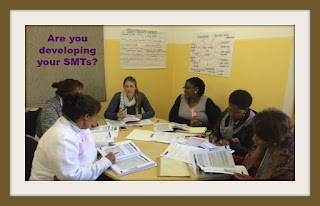School newsletters are a powerful, strategic resource to engage school communities.

School newsletters are a powerful, strategic resource to engage school communities. There are many schools that send monthly or fortnightly newsletters, yet there are schools that issue weekly newsletters in the areas where I work. Delta Primary School is one of the schools that sends weekly newsletters to parents. The new principal, Hilton Palanyandi, explained the purpose of their weekly newsletters. "I have learned from other schools. I have looked at the various models used by other schools and felt that the weekly newsletter serves our needs. There is so much happening at the school and the newsletter helps to bridge the communication gap between the school and the parents. Parents and learners receive the news briefs about important school business and learner achievements in and outside the classroom. We are also using the newsletter to tackle the problem of late coming at our school and we have had success. Addressing latecoming Late coming was a huge prob...




